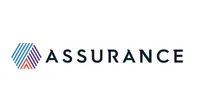How to choose a health insurance plan
Health insurance plans can be confusing. Here’s some tips for getting started.

Many people enjoy health insurance courtesy of their employer, and if you’re fortunate enough to be one of them, the choice of company is made for you. If not, you will need to pick a plan from one of the best health insurance companies, but buying your own health insurance can be confusing, and navigating the marketplace can be intimidating.
Individual needs vary immensely, and plans vary state by state, some available nationwide, others not. So where to start your search for the perfect policy for you? A good place to begin your search is at the website healthcare.gov, where you’ll either be directed to your state’s healthcare exchange or the federal marketplace.
Types of health insurance plans
Finding the right health insurance provider can be complicated and stressful. Assurance tries to make it easier by providing custom quotes, based on your needs, from multiple health insurance providers. It's a great place to start looking.
There are a lot of abbreviations to learn when you start shopping for health insurance. The most common types of insurance are HMOs, PPOs, EPOs or POS plans. Your choice of these will effect things such as what your out of pocket costs are likely to be and which doctors you can see.
HMOs: Health Maintenance Organizations. These are best for lower out of pocket expenses and using a primary doctor who will direct your healthcare for you. This would include ordering tests, referrals to specialists, etc. You need to stay in the provider network other than real emergencies and referrals are needed for specialist procedures.
PPOs: Preferred Provider Organizations: This is a better fit for you if you want more in the way of provider options without the need for referrals. You don’t have to stay in the provider network (though going outside of it is more expensive) and referrals are not necessary.
EPOs: Exclusive Provider Organizations: This is kind of a half way house between the former two options, with lower out of pocket expenses than PPOs but also no requirement for referrals. You do have to stay in network, though, other than in case of emergencies.
POS: Point Of Service: These have the same advantages of the HMO plans - lower out of pocket expenses and using a primary doctor who will direct your healthcare for you. You don’t have to stay within the network but you need a referral to go outside of the network and it will be more expensive.
Sign up to receive the latest news, reviews, buying guides and deals direct to your inbox
It’s important to weigh up your specific needs and the needs of any dependants you might have before deciding which kind of plan to go for. Obviously it’s hard to see into the future, but being aware of the general types can help you make an informed choice.
Many people don’t want to have to see a primary care physician before being referred to a specialist, and so the other plans are a better fit for them. This is more work and research on the customer’s end, though, and with HMOs and POS plans, the doctor will do that work for you.
An EPO plan is sometimes a good bet for a larger city that will be more likely to offer a wide range of in-network doctors. PPO plans may be more suitable for smaller towns and rural communities that have a more limited availability of network providers.
Healthcare provider networks
The healthcare insurance companies have relationships with the providers in their network, and so when you see the doctors and specialists within your provider network, you’re getting a cheaper, pre-negotiated price. Seeing people outside the network means that the insurance companies – and eventually the customers – have to pay more.
Many people like the doctor they have and want to keep seeing them. Therefore it’s important to check if your physician is in your insurance provider’s network. This is especially important outside of bigger cities. It makes sense to pass on those companies that have small provider networks.
What are the out of pocket costs?
Policies don’t cover the entire cost of seeing a doctor, so it’s essential that you find out how much you’re likely to have to pay for each part of your healthcare. A general rule of thumb is that the lower your monthly premiums are, the higher your out of pocket expenses are likely to be.
There are some advantages to taking out a policy with higher premiums and therefore having a higher percentage of your out of pockets expenses paid. You may have to see a doctor frequently or routinely have to undergo emergency care or hospital procedures. You may require constant medication (especially if it’s brand named). You may be expecting a child or you’ve been diagnosed with a chronic condition. If you’re in good health and rarely see a doctor, then of course, lower premiums and higher our of pocket expenses are the way forward.
What are the benefits?
Another filter that you may need to apply to your choice is the range of wider services that come with your policy. This might cover things such as mental healthcare or ongoing physical therapy. It’s important to check which medications and drugs are covered in your plan, which wellbeing services, any maternity services if those are relevant, plus any international coverage if you travel often. Prepare a list of questions before you start looking for quotes so that you’re able to make the best informed choice.
Summary of the process
Here are the steps you should take, then, which will at least make your decision easier and more informed:
- Find out what your marketplace looks like and which plans are possible where you live
- Weigh up the various types of plan from HMO, PPO, EPO or POS plans, according to how suitable they are for you and your family members if you’re taking out a family plan
- You can easily eliminate the plans that don’t include your primary care physician in their network, if seeing them is important to you
- Consider your healthcare situation and decide if higher premiums or higher out of pocket expenses are going to offer you the best value
- Check that any regular care you need – from medications to physiotherapy and the like – is covered by your plan
You might find our handy guide to some of the health insurance jargon you may run across and what it means useful. If you're interested in more specific of health insurance companies, we've reviewed and rated the best dental insurance and best vision insurance plans. Planning further ahead and we round-up the best Medicare Part D plans.

Finding the right health insurance provider can be complicated and stressful. Assurance tries to make it easier by providing custom quotes, based on your needs, from multiple health insurance providers. It's a great place to start looking.
Paul Oswell is a US-based freelance writer for the Guardian, Daily Telegraph, The Sunday Times and more. While working for Top Ten Reviews, Paul has written about a broad range of subjects, but many of these concern money and tax. You'll find his bylines on articles from tax software to payday loans to create your own Will software.


